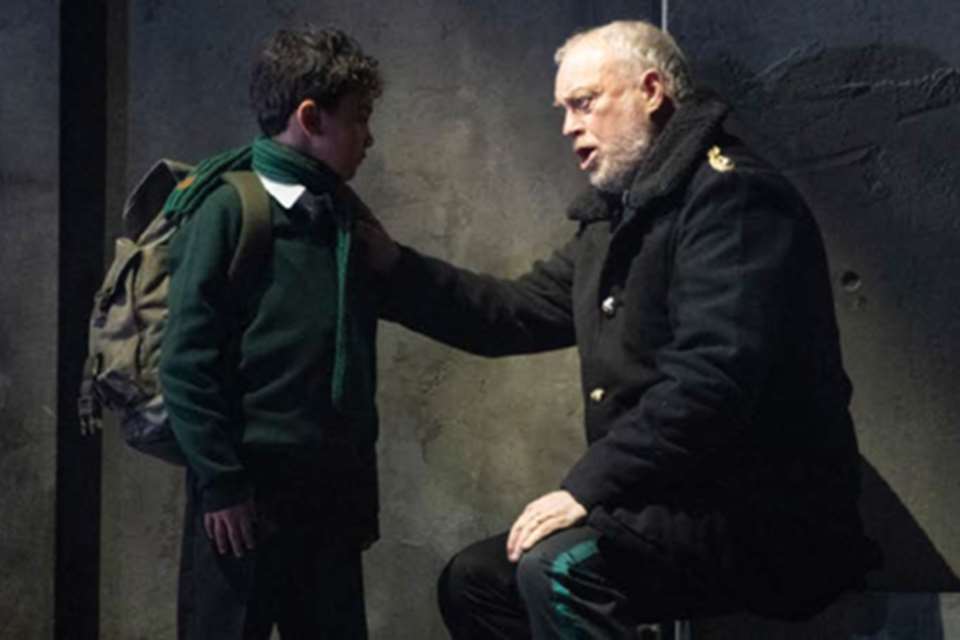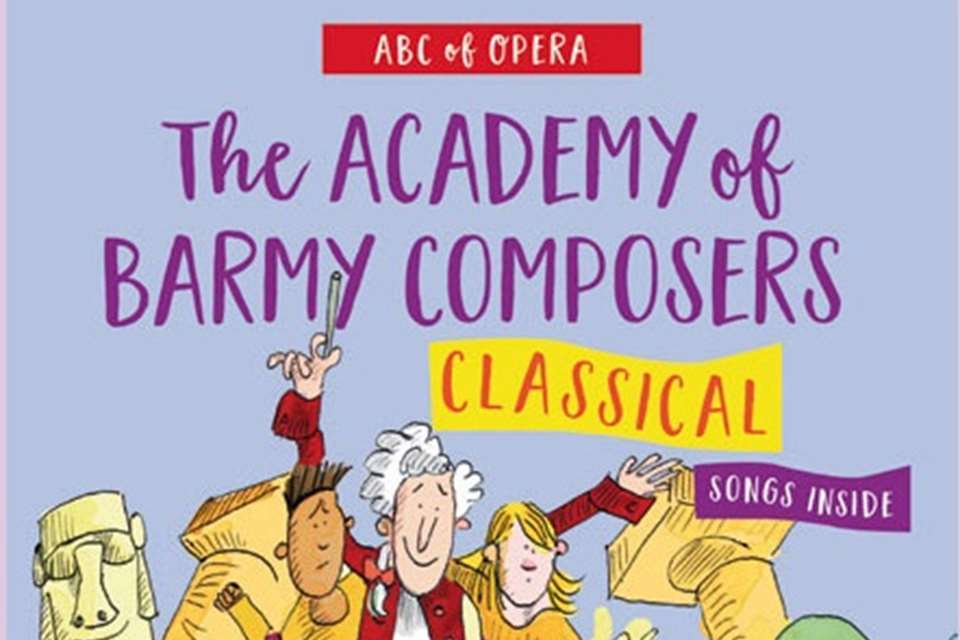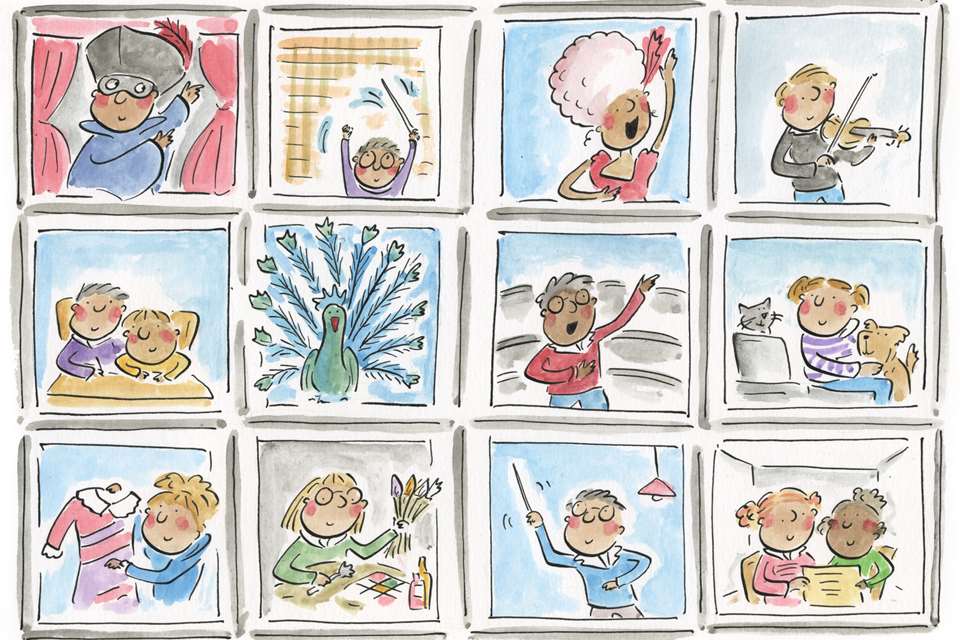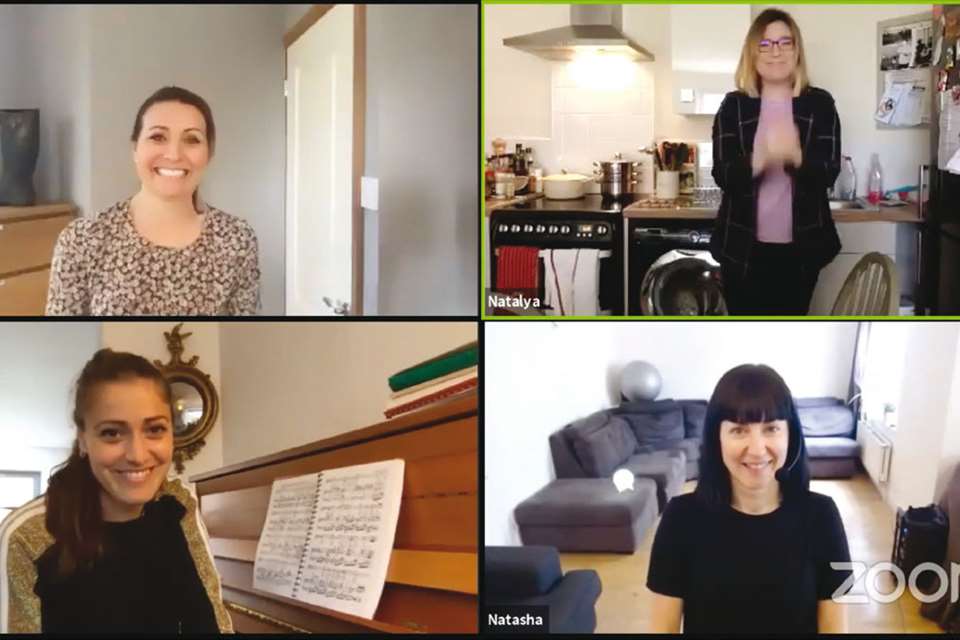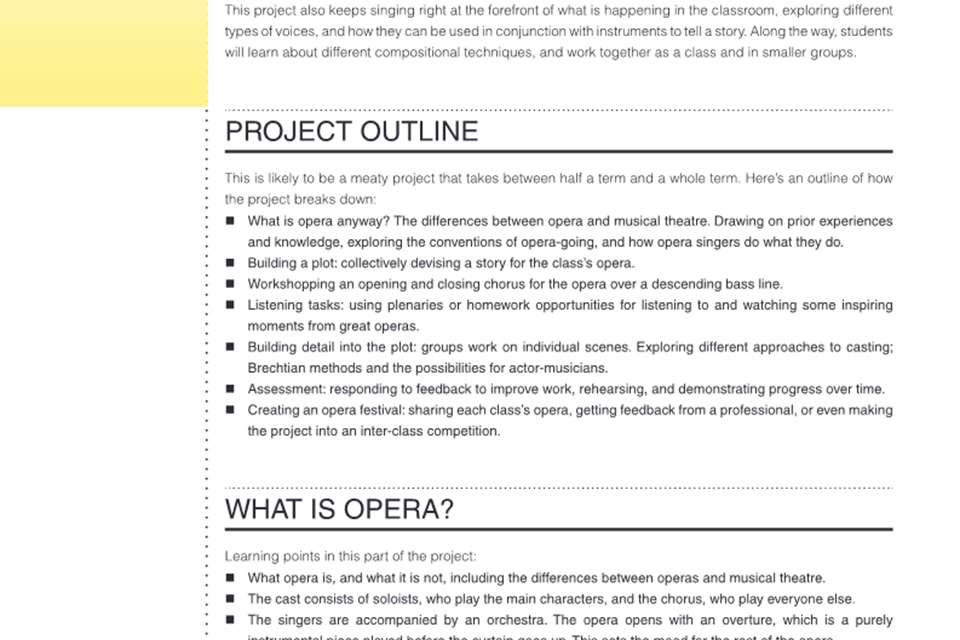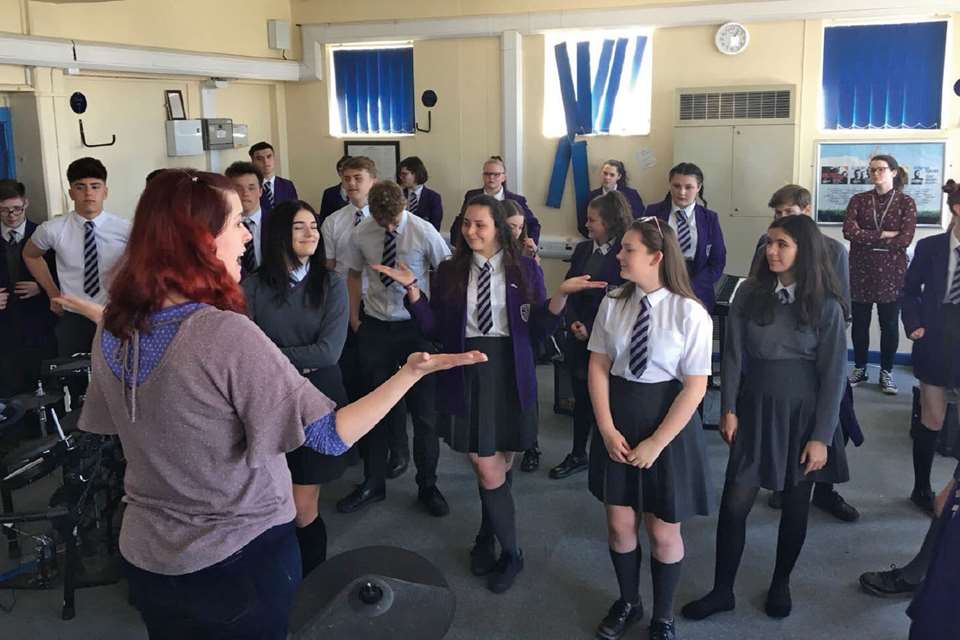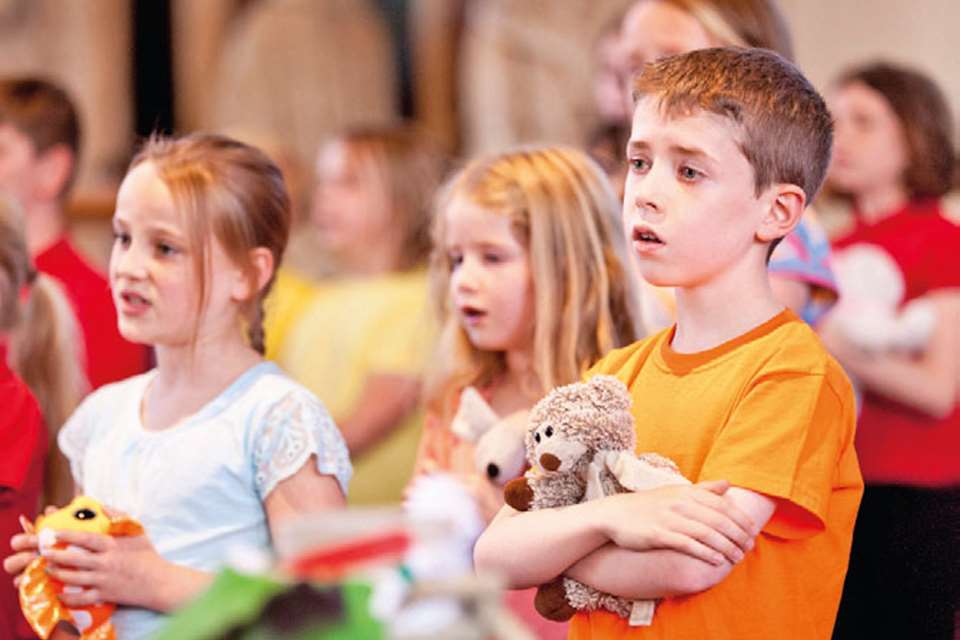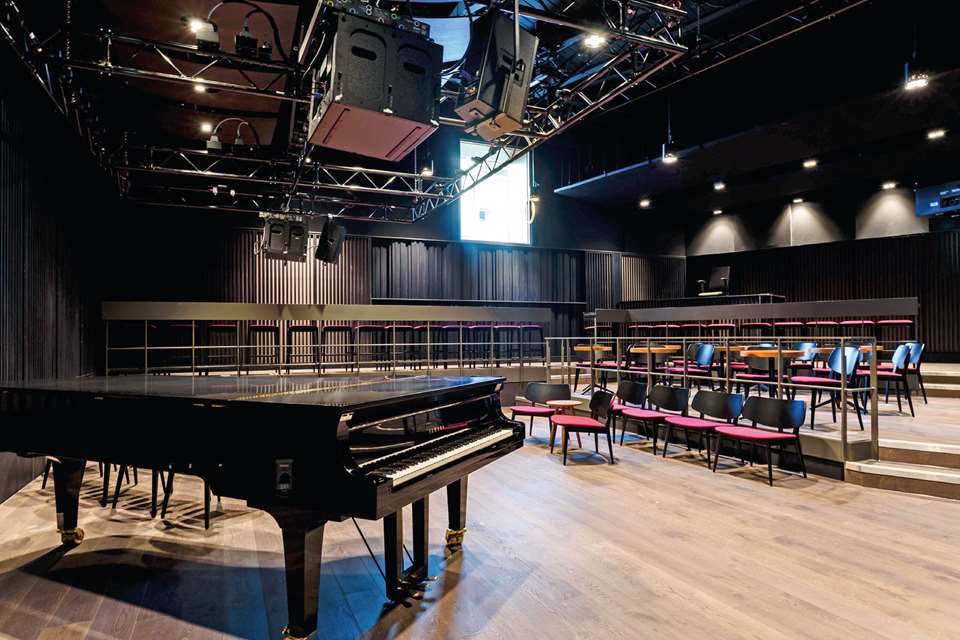Opera without the operatics: Scottish Opera's outreach team at 50
Hattie Fisk
Friday, October 1, 2021
Celebrating 50 years of promoting opera in communities across Scotland, director of outreach and education Jane Davidson tells Hattie Fisk about Scottish Opera's ethos and their advice for bringing the classical art form into the classroom.
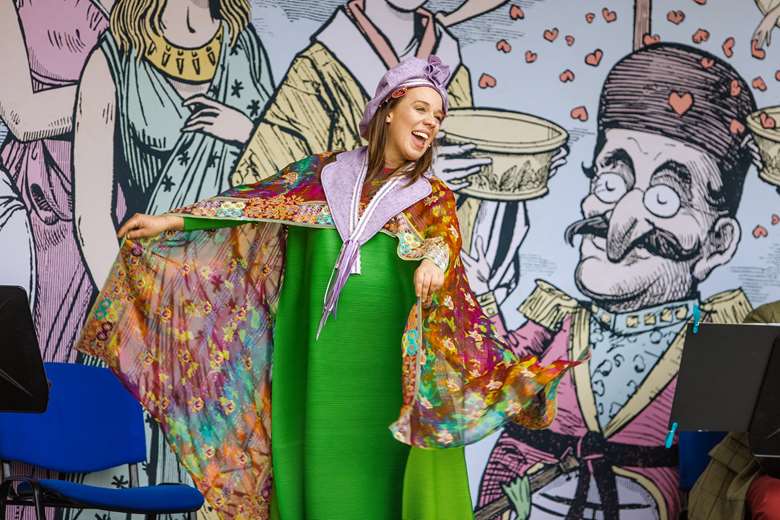
Scottish Opera
When you hear the word ‘opera’, what springs to mind? The stereotypical images of a dramatic and largely inaccessible form of theatre have been pushed aside when it comes to Scottish Opera and their inventive outreach work.
Working with schools and communities across Scotland – no town is too remote – they have delivered a huge number of productions over the years for children to watch and perform. Most recently, their socially-distanced ‘Pop-up Opera’ toured the country, delivering performances of The Pirates of Penzance to families, and A Little Bit of Bubble McBea for ages 3–7, all performed on a transportable makeshift stage on the back of a lorry trailer.
Director of outreach and education, Jane Davidson, gives me a short history lesson on the tradition of opera and how her department's work sits within the context of this. The company ‘began what we recognise now as outreach’ in 1971, making them the ‘oldest educational outreach department of any opera house in Europe and North America – possibly the world!’. Davidson joined the team in 1984 and has proudly been with them ever since. They then invented ‘Opera-go-round’, taking advantage of Scotland's unique geographical set-up to create a new cultural identity through opera with touring productions to Scottish communities. ‘It was not about setting up beautiful operas in a huge theatre in the centre of the city like so many companies do, but instead making it local.’
They have also run a primary school programme for 15 years, and it's still going. ‘We commission short 30-minute pieces as a method of cross curricular learning – a range of subject matters are important [in a performance], such as science, technology, environmental history or maths.’ Scottish Opera provides teachers with all the materials to prepare the children musically, and then the team arrives on the day and spends two or three hours with the children, before they then perform to the families.
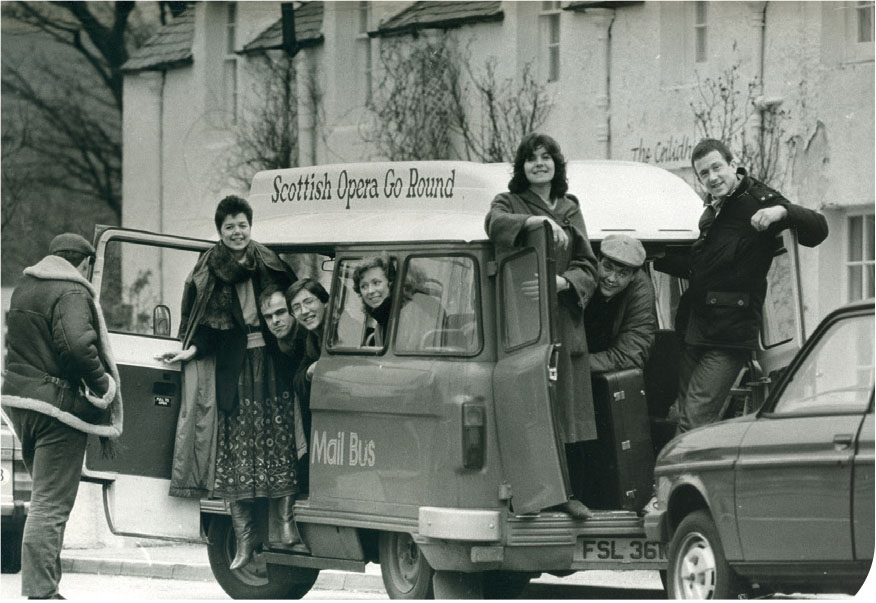 © The Glasgow Herald
© The Glasgow Herald
Opera Go Round Bus in 1971
Maintaining relevance
Despite its history, Scottish Opera remains at the forefront of progressive performances, ensuring each production is relatable and relevant to the audience. When the pandemic hit, the team used the event as a point of connection with the children they work with, rather than a barrier. Reaching into the cupboard for an old primary school opera entitled Fever!, the company created a virtual experience for children across the world to get involved in. ‘It was all about a small boy who gets this unknown illness, and he gets rushed to hospital,’ Davidson says. ‘The opera is actually set inside the boy, with an immune system full of characters – the good bacteria are American footballers, and the white blood cells are similar to the NYPD [New York City Police Department]. We incorporated cross-curricular elements to adapt quite an old production to suit the times we were facing in the pandemic, and it worked really well.’
The virtual show expanded the outreach to a much wider pool of participants than usual, with groups from Australia and Italy getting involved too. Children were encouraged to send in videos of themselves performing, which were then compiled for a live streamed final performance. Davidson reiterates the importance of the virtual production: ‘In these uncertain and difficult times, never has our commitment been so crucial and the need for positive and supportive musical experiences been as vital’.
Dismantling presumptions
Preconceptions about opera are rife, and Davidson confirms that the ‘expansive and classy’ stereotypes often associated with the art form are not always accurate. When applying opera to schools, Davidson states that ‘97 per cent of the time, we work in state systems'. For her, that emphasises that opera can be for all: ‘The assumptions endorse the qualitative aspect of it, and in fact, quality is for everyone and quality should be for everyone; you've got the right to expect that from your educational experience’. In adapting the grandeur of historical opera for the stages of primary and secondary schools across Scotland, the company is placing value on the education of those children and allowing artistic expression to be available to all.
Uniting languages
Classically, opera unites English and Italian, but as Davidson elaborates on the work Scottish Opera does with local communities, I am struck by the number of elements this branch of theatre weaves together. The multi-layered art form unites visual spectacles, languages, singing techniques, and storytelling.
Davidson anecdotally tells me of studies that suggest that young children who experience opera can separate different languages from one another at a faster rate. ‘It doesn't mean that children could go and order a pizza in Italian,’ she laughs, ‘but it does mean there is an extra layer of complexity and learning that you miss with other art forms. It is unique in its use of language, and that is often why teachers shy away from opera – but this can actually be its strength in the classroom.’
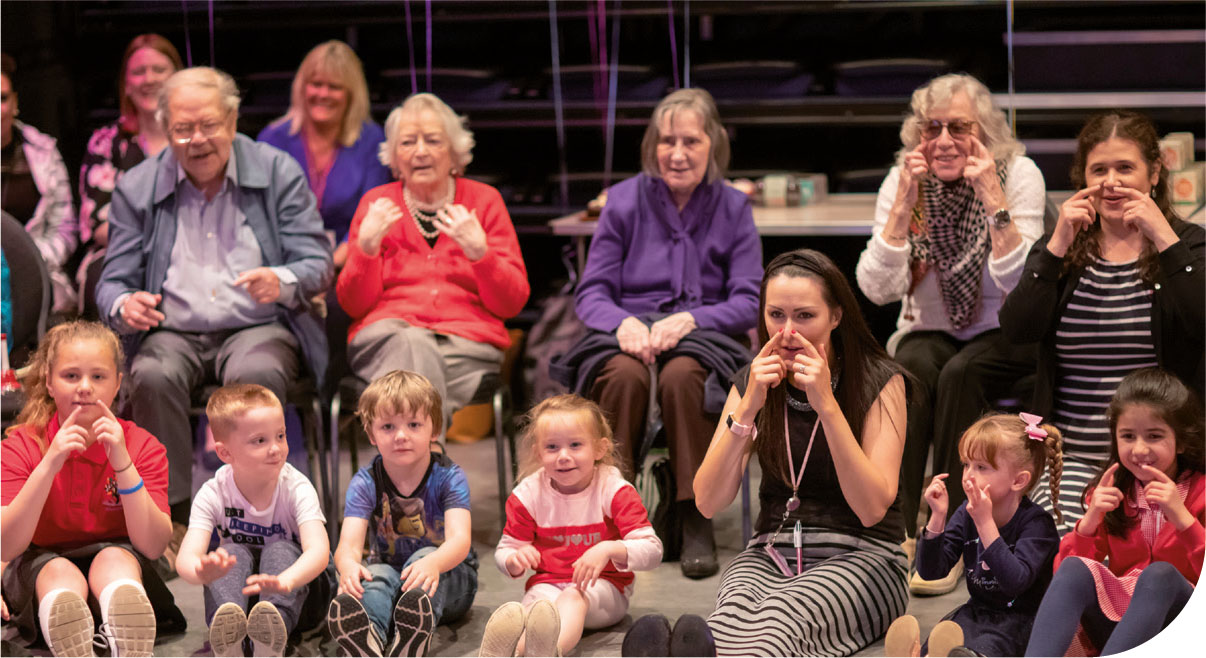 © James Glossop
© James Glossop
Participants at the East Kilbride Spinning Songs with Scottish Opera (2019)
50th anniversary celebrations
After 50 years of work in this area of outreach, the team has learnt a lot about involvement in the community and how to use opera for the benefit of Scotland. ‘Opera does get a bad name,’ Davidson admits, ‘because plenty of it was a load of rubbish and isn't performed anymore. The new projects we commission and perform are nothing like that. They are productions that help with the pressures of lockdown or unite communities and schools.’
General manager of Scottish Opera, Alex Reedijk, says in a recent press release: ‘Over the last year we have been resilient in our attempts to adapt to the circumstances by offering our On Screen productions, as well as “Pop-up Opera” and our five-star outdoor productions of Falstaff and La bohème. [Live performances are] at the heart of everything we aim for as a company, travelling the highways and byways of Scotland to make opera accessible to all.’
A host of productions are returning to the stage to celebrate the anniversary of Scottish Opera's outreach work. Postponed since May 2020, Scottish Opera is bringing a new co-production with D’Oyly Carte Opera and State Opera South Australia of Gilbert and Sullivan's The Gondoliers to Theatre Royal Glasgow, Festival Theatre Edinburgh and Eden Court Inverness this Autumn, before touring to London's Hackney Empire in March 2022. Their touring ‘Pop-up Opera’ will also continue into the Autumn and will be playing in various spots across the country, with affordable ticket prices for all.
The beauty of the work Scottish Opera does lies in the marriage of different elements of the school curriculum. While the return of opera to school stages is important – and definitely a worthwhile mission – the most striking part of this team is the ethos of equality. The subversion of a once elitist mode of performance to a means of fostering community and expression is admirable, and something other areas of the UK should aspire to adopt.
The company's Opera On Screen productions are available to watch at: www.scottishopera.org.uk/what-s-on/opera-on-screen


